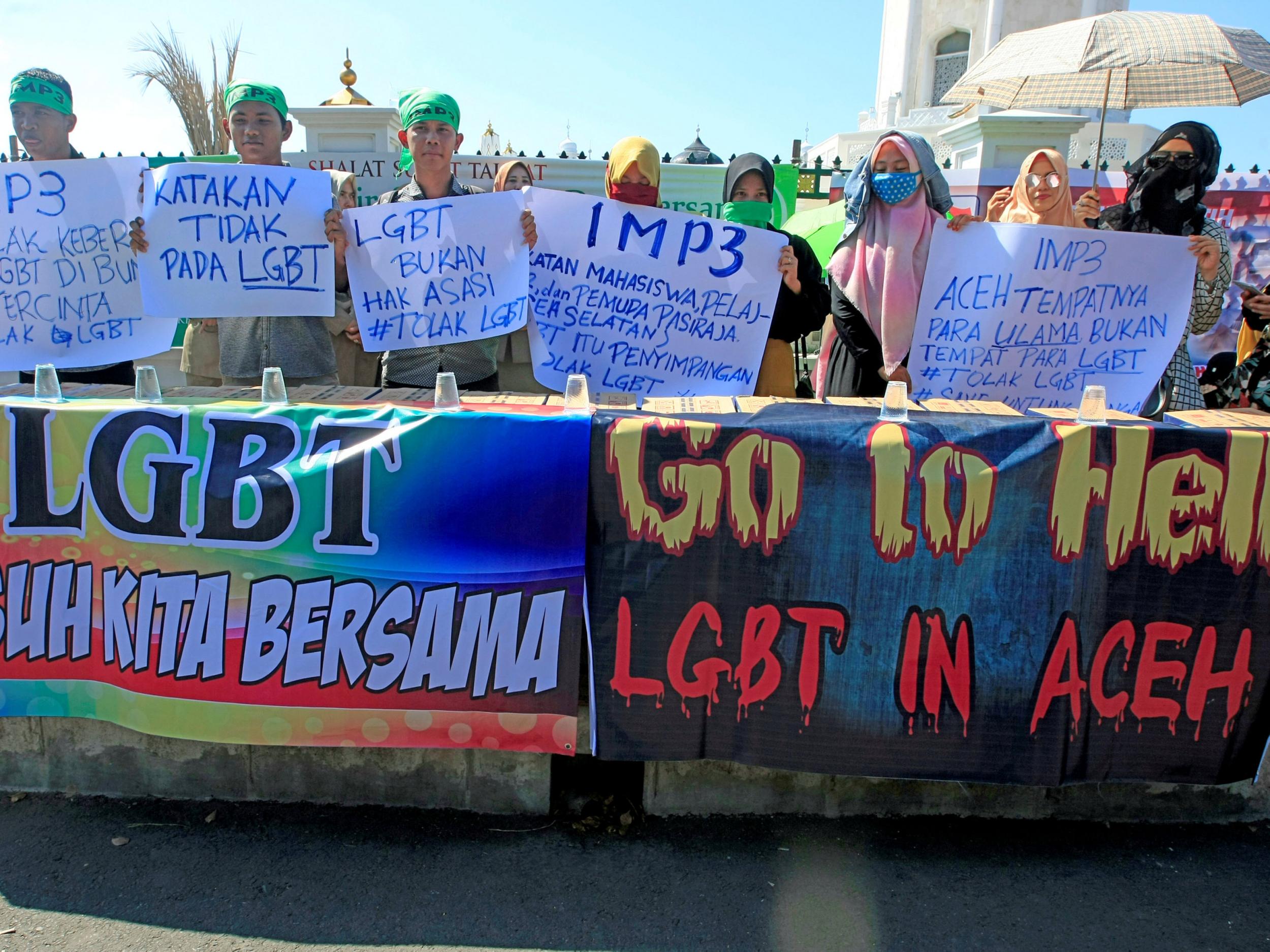Indonesia is about to give LGBT+ people the worst Valentine’s Day gift ever by making homosexuality illegal
Gay apps have been banned; houses, parties and saunas raided and two men accused of same-sex relations flogged in public

Your support helps us to tell the story
From reproductive rights to climate change to Big Tech, The Independent is on the ground when the story is developing. Whether it's investigating the financials of Elon Musk's pro-Trump PAC or producing our latest documentary, 'The A Word', which shines a light on the American women fighting for reproductive rights, we know how important it is to parse out the facts from the messaging.
At such a critical moment in US history, we need reporters on the ground. Your donation allows us to keep sending journalists to speak to both sides of the story.
The Independent is trusted by Americans across the entire political spectrum. And unlike many other quality news outlets, we choose not to lock Americans out of our reporting and analysis with paywalls. We believe quality journalism should be available to everyone, paid for by those who can afford it.
Your support makes all the difference.It will be, without doubt, the very worst Valentine’s gift in history. If Indonesia changes the law today, millions of its LGBT+ citizens will wake up as criminals. A text, a card, a few sweet nothings to the same sex on Valentine’s Day, and they could end up in jail for five years.
Indonesia used to be (grudgingly) tolerant of its LGBT+ community. But the political well was poisoned against them by a toxic mix of nationalism, right-wing populism and extremist religion.
Gay apps have been banned; houses, parties and saunas raided and two men accused of same-sex relations were flogged in public. Countless others have been terrorised. Government officials have provided political cover for these attacks; back in 2016, the defence minister announced that the LGBT+ movement was a greater threat than nuclear war.
Indonesia isn’t just one country foolishly going against the tide of history. Egypt is in talks to criminalise homosexuality; Turkey has banned all gay events; Tanzania, Zanzibar, Uganda, Nigeria… they are all cracking down on LGBT+ activists. Seventy-two other countries imprison, torture, behead and hang LGBT+ people every day. An estimated 170 million people are currently outlawed. If they were a country, they’d be the eighth largest in the world.
In Chechnya, LGBT+ people were not only repressed, but their very existence was threatened with gay pogroms. “You cannot arrest or repress people who just don’t exist in the republic,” said the Chechen spokesperson in a chillingly Orwellian indication of intent. As the UN has warned, we’re facing a global gay crisis.
The global backlash reflects the emergence of reactionary authoritarianism. Putin, Erdogan and their ilk demonise homosexuality and portray it as a decadent, corrupt Western import. Domestically, fanning the flames of homophobia shores up their support. Internationally, anti-gay hatred is deployed to undermine ideas of universal human rights, build alliances and push back against Western influence.
Kaleidoscope Trust and Human Dignity Trust are two UK organisations working with activists on the ground in many of these countries. This is crucial, but what of those who need to escape? Chechnya provides a useful lesson here. While the government was reading from the very darkest pages of history, civil society organisations were learning from those that offered a glimmer of light. The Russian LGBT Network set up an “underground railroad” – like the one that helped thousands of American slaves escape to the North – evacuating over a hundred gay men to sanctuary abroad.
Only a handful of countries helped those escaping Chechnya’s gay concentration camps – the US simply turned them away. Refugee fatigue needs to be tackled if we are to roll out the LGBT+ underground railroad across a network of counties.
A truly global response would be the most powerful response to Indonesia’s “gift” – a Valentine’s Day message to all LGBT+ people facing prison, persecution, torture or death, letting them know that they’re not alone, that the world won’t stand by any longer.
Join our commenting forum
Join thought-provoking conversations, follow other Independent readers and see their replies
Comments